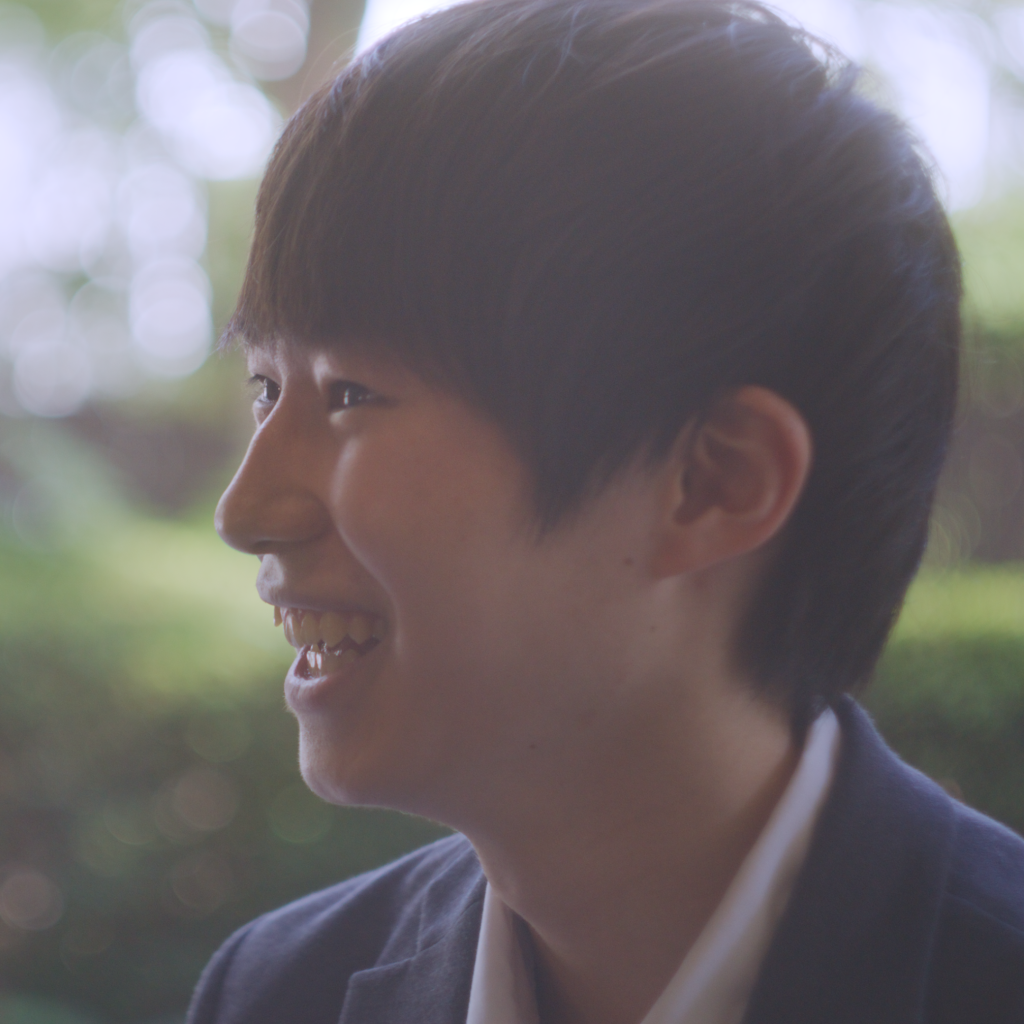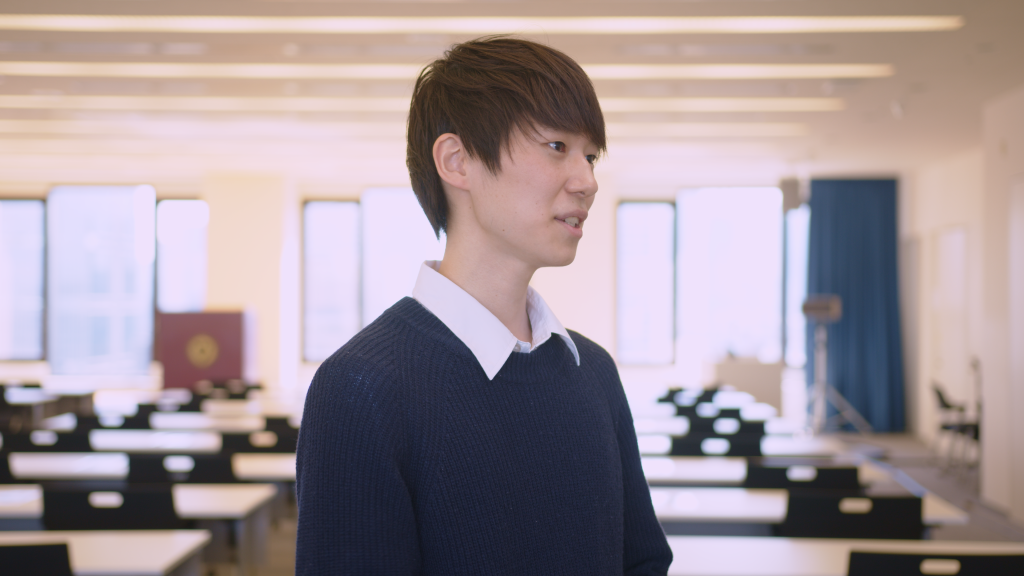Working through hardship to find satisfying answers to life’s questions

Tetsuji Yamaguchi, a senior in the Department of Sociology says, “I came to realize that the path for me would be to work in a job that requires me to keep reading books for the rest of my life.”
Discovering a passion for researching in his undergraduate studies has inspired him to dedicate his career to academia by becoming a scholar. This path begins now as he prepares to enter graduate school.
Challenging existing views to discover new realizations
For me, human science is about making life better for everyone, which I believe is a view shared by the other departments in the Faculty of Human Sciences.
Being a human scientist means applying one’s imagination to problem-solving and always choosing to help others without being concerned with personal gain. When seeing someone in a disadvantageous position, we should never judge or persecute them, but do our best to help them however we can. To me, this is the essence of human science, and is what inspired me to study sociology.
One of the things I find most interesting about sociology is its relatability. Sociology touches on topics that focus on family, labor, education, and environmental concerns, to name only a few. These are all important topics that everyone comes into contact with every day and affect all of us living in society, so even if one studies sociology without a specific designation, it’s easy to find an area that will be of personal interest. Being able to connect on a personal level to the subject matter is one of the most appealing aspects of studying sociology.
In this sense, the class “Sociology of Aging and Generations” was especially impactful. We discussed the reality of Japan’s declining birthrate and aging population, nursing care issues, and prejudice against the elderly such as age discrimination. It made me realize how much I had negatively viewed the idea of aging. Until then, I had planned to age in a way that focused on avoiding inconveniencing those around me when I got older.
When I mentioned this to my professor, he reminded me that not only is it okay to cause trouble, but he also posed the question, “wouldn’t it be difficult to live in a society that dictated how people live? Why shouldn’t you be a bother?” These questions challenged my pre-existing viewpoints and made me realize how difficult it would be living in a society full of people like me who viewed aging as something to be avoided. This led me to start thinking about aging as something that should be embraced and not feared, which alleviated the anxiety I had been feeling about growing older.
A learning environment that provides ample opportunities for self-reflection and growth

Looking back, I remember that it was difficult for me to visualize what studying sociology would mean for my career as a student. Despite this, I decided to enter the Department of Sociology because I recognized that there was an opportunity to learn about a wide range of subjects. Once enrolled, I found that there were few required courses, so I was able to develop my own during my first and second years. This allowed me to find new areas of interest that I may not have discovered with a more rigid schedule.
Another advantage of studying at Sophia is that the relatively small campus size allows for a closer connection between the faculty and students. I often consulted with professors not only about academics but also about student life and my future; they always provided me with helpful advice. Before entering university, I had given up on the idea of receiving small-group instruction at a private university, but I am very thankful that the Department of Sociology’s classes are so intimate and that I was able to receive personal guidance from my teachers.
Since all undergraduate departments, both the humanities and sciences, are located on the same Campus in central Tokyo, I had many opportunities to discuss my studies with students from a variety of departments. Being able to speak with students studying different topics expands your frame of reference, as you can become aware of details you might not have noticed on your own and develop an interest in new areas.
I also took classes in the Departments of Psychology and Education, and what I learned in those courses was sometimes unexpectedly related to my own research. And with so many students coming from outside Japan to study at Sophia, the campus has an international feeling to it, which provides the same opportunities for learning about new cultures and ways of thinking that one would get from studying abroad.
Creating deeper connections with existing passions through hard work and perseverance
In the future, my dream is to become a scholar at a university or research institute. Before entering university, I had intended to enter the workforce after graduation, but as I continued my studies in the Department of Sociology, I came to realize that the path for me would be to work in a job that requires me to keep reading books for the rest of my life. I like the process of not only solving problems presented to me, but also coming up with my own questions and answering them in a way that satisfies me.
A good example of this is my graduation thesis. Out of all the assignments I had during my career as a student, it was the one I put the most effort into. At first, I thought it would be easy to find a topic to write about, since the Department of Sociology allows you to choose a theme based on your own interests. If I wanted to write about a particular band or film that I was passionate about, I had the freedom to do so.
However, when I began my research, I found it more difficult than I had imagined to verbalize why I wanted to research my chosen topic. Writing my thesis involved reading books that had nothing to do with my area of specialty and having discussions with students from other departments, which helped me discover how to properly articulate the argument I was trying to convey. It was an enjoyable process that helped me understand my passions on a deeper level.
That is why I chose to go on to graduate school to realize my dream of becoming a scholar. In academic language, my planned research topic is “vocational relevance of education.” According to international comparative research, there is a perception that the usefulness of Japanese education for future careers, or the “sense of usefulness,” is low.
Therefore, in graduate school, I would like to research which groups in particular do not feel a sense of usefulness, why that is, and what should be done to increase their sense of value and motivate them to study. I believe that the way of thinking and perception skills that I acquired in the Department of Sociology will be useful in this research.
※Please note that the content of this article is current as of November 2021